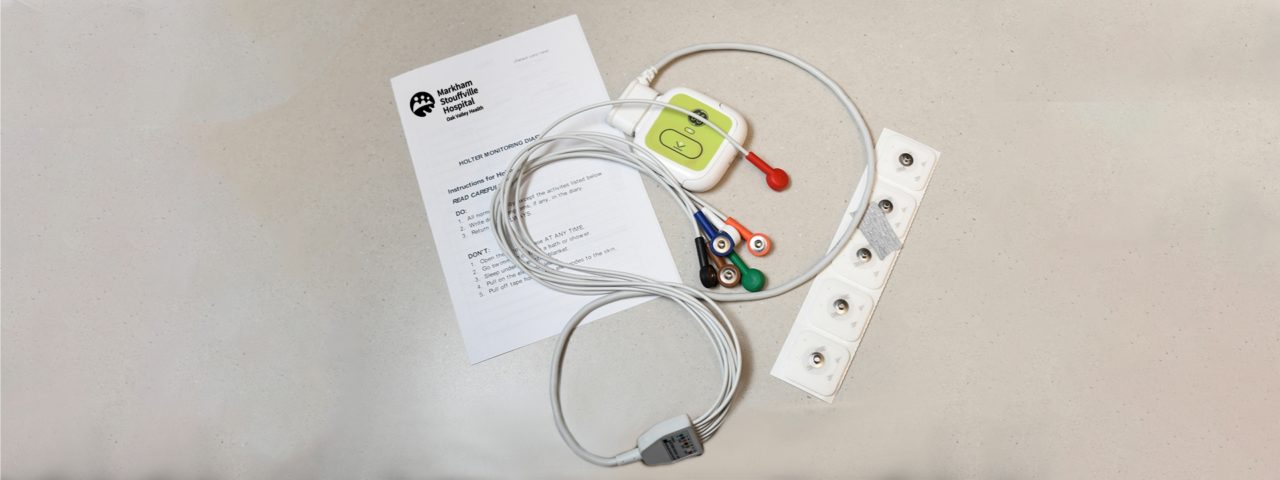A Holter monitor is a small battery-operated unit with attached ECG wires and electrodes that record your heart rate and rhythm continuously for 24, 48, or 72 hours as ordered by your physician. This is done to evaluate if there are any abnormalities in the pattern of your heart rhythm or rate that may be leading to symptoms such as palpitations, chest discomfort, dizziness, or fainting.
To have a Holter monitor test, your doctor needs to fill out a referral form. Download Holter monitor test referral form.
Learn more about making an appointment and coming to our hospitals.
The Holter monitor will be applied by a cardiology technologist.
Before and During Your Holter monitor test
Please wear comfortable clothing such as a front-buttoning blouse or shirt that gives easy access to your chest on the day of your test. Avoid wearing a dress, full slip, corset, or pantyhose.
You cannot shower or bathe while the monitor is attached to you so please do this before arriving.
The technologist will apply small sticky electrodes to your skin which will be attached by wires to a portable electronic monitor that you can carry under your clothing. The electrodes and monitor will record your heart activity over the following 24 to 72 hours, depending on what your doctor has ordered.
Please do not sleep under an electric blanket, as the monitor may pick up electrical interference. Otherwise, plan to continue with your regular daily activities.
After Your Holter Monitor Test
Your technologist will tell you how and where to return the Holter monitor. We will download the information about your heart from the monitor, review it, and send a report to the cardiologist for interpretation. The results will be sent to your physician.
